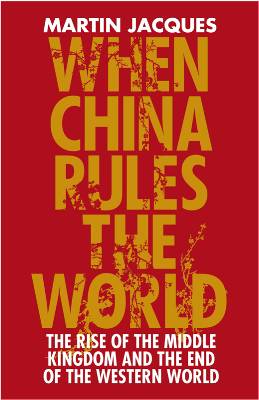简介:
Important economic and strategic realignments are taking place in Asia but receiving relatively limited press and academic attention. Thailand, Indonesia, and South Korea were dealt, well publicized, blows by the 1997 Asian financial crisis and Japan's stagnation in the 1990s has also been widely analyzed. What has not been adequately explored is the impact of economic restructuring and slowing of growth rates in the other Pacific Rim economies, notably Taiwan, Hong Kong, Malaysia, and Singapore. Although China's rise to prominence has received extensive commentary from journalists, economists and strategic analysts, much more limited attention has been given to the relative decline of the Pacific Rim states or the rapid rise of India's economic and strategic position. This volume attempts to explain why the 1997 financial crisis was such a critical turning point and, unexpectedly, ended up stimulating trade and investment within Asia.
作者简介:
David B.H. Denoon is Professor of Politics and Economics at New York University. He has a B.A. from Harvard, an M.P.A. from Princeton, and a Ph.D. from M.I.T.; and has served in the Federal Government in three positions: Program Economist for USAID in Jakarta, Vice President of the U.S. Export-Import Bank, and Deputy Assistant Secretary of Defense. Professor Denoon is a member of the Council on Foreign Relations, the International Institute for Strategic Studies (London), the Asia Society, the U.S.-Indonesia Society, and is Co-Chairman of the Columbia University Faculty Seminar on Southeast Asia. He is also Chairman of the Editorial Advisory Board of Great Decisions. He is the author and editor of six prior books, including Real Reciprocity - Balancing U.S. Economic and Security Policy in the Pacific Basin.
书评:
"A marvelously rich, important, original book on the rise of the 'mega-countries,' China and India, who are casting a long shadow on the rest of the world."
-- Paul Bracken, Professor of Management & Political Science, Yale University
"This both sweeping and detailed study contributes significantly to our understanding of the combination of economic and strategic developments in Asia since the financial crisis of 1997. The economic-growth driven, sustained, phenomenal rise of China and India is a dominant event of the 21st century. In his analysis, Professor Denoon considers how these new, evolving strategic realignments and balances in Asia will have significant, though not yet well appreciated, implications for U.S. foreign policy."
-- Hugh T. Patrick, Co-Director, APEC Study Center, Columbia University and R.D. Calkins Professor Emeritus
"David Denoon has given us a major book which will help refocus our attention away from the post-9/11 preoccupation with the Middle East and Gulf to fundamental strategic realignments underway in South and East Asia. Denoon is a unique Asia specialist in his ability to assess the economic as well as the political trends that are transforming the Asia-Pacific region. He documents in detail how the continental powers of Asia – India and China – as well as Japan emerged unscathed from the financial crisis of 1997 to reshape the economic structure of the region, and how institutions like ASEAN and APEC have failed to give voice to the concerns of smaller regional states. This is an analysis much broader than the 'rise of China'. It will help us understand why Asia will be the world’s power center of the 21st Century."
--Richard H. Solomon, President, U.S. Institute of Peace
ISBN-10: 0230614043
ISBN-13: 978-0230614048
出版社:Palgrave Macmillan
出版时间:February 17, 2009
页数: 228 pages
语言: English
价格: $29.00
更多:http://www.amazon.com/Economic-Strategic-Rise-China-India/dp/0230614043/ref=sr_1_1?ie=UTF8&s=books&qid=1255510720&sr=1-1







